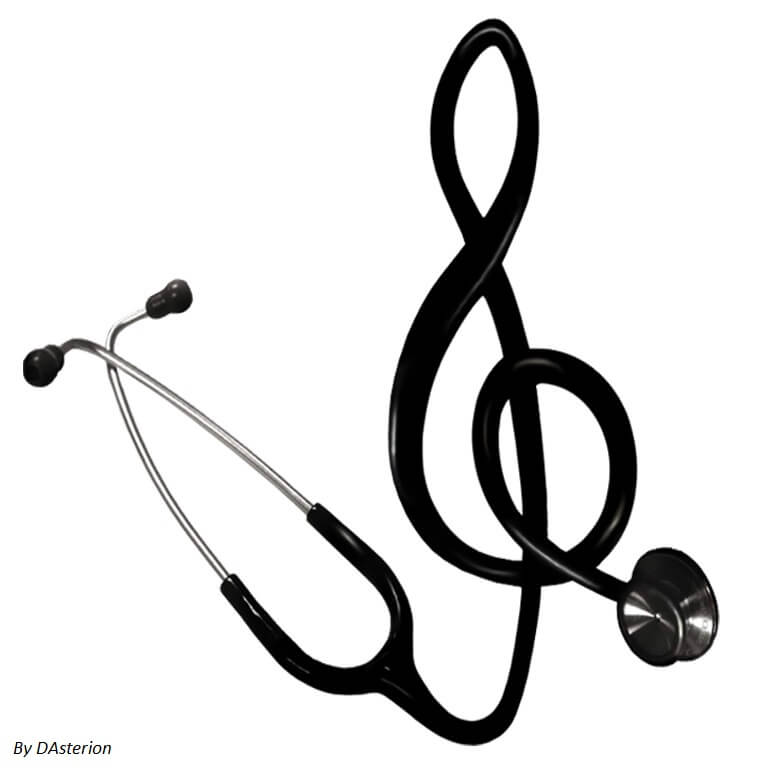When we talk of music and sounds, we mean communication. And such communication is something felt, rather than understood. That is what makes music universal in its concept. And the process as to that happens has not only enthralled musicians and music-loving people, but also the scientists.
“If the scope of research on the psychological and physiological impacts of music is any indication, much is known — and yet unknown — about how music affects the human mind and body. “By better understanding what music is and where it comes from, we may be able to better understand our motives, fears, desires, memories and even communication in the broadest sense,” writes neuroscientist, musician and author Daniel J. Levitin in his 2007 book This Is Your Brain on Music.”
Music.Mic gives us few pointers as to how exactly music helps us in our lives, and yes, these are proven!
1. It Makes You Smarter- “It’s no secret music has a serious impact on a person’s brain activity — whether that’s how it engages different parts of the brain, how humans memorize tunes and lyrics or how different types of melodies and rhythms can elicit different emotional responses. It’s even been reported that ambient noise, played at a moderate volume, can encourage creativity, and that listening to music can help repair brain damage…”When you make music, it engages many different areas of the brain, including visual, auditory and motor areas,” Schlaug told News in Health. “That’s why music making is also of potential interest in treating neurologic disorders.”
2. Sad Music doesn’t really make you sad- After conducting a survey of 44 participants, “The results revealed that the sad music was perceived to be more tragic, whereas the actual experiences of the participants listening to the sad music induced them to feel more romantic, more blithe, and less tragic emotions than they actually perceived with respect to the same music,” the study found. “Thus, the participants experienced ambivalent emotions when they listened to the sad music.”
3. It has positive medicinal effects- Even Plato suggested they use music to heal people. “Physiologically, music has a distinct effect on many biological processes,” Kent wrote. “It inhibits the occurrence of fatigue, as well as changes the pulse and respiration rates, external blood pressure levels and psychogalvanic effect.” One theory even introduces something called the “Mozart effect,” and a study that builds on the theory found that the infamous composer’s “Piano Sonata in D Major” led to decreased epilepsy in patients —a finding that even extended to patients in comas.
4. Your music is your mood: “Music can increase one’s libido,” said Curtis Levang, a clinical psychologist and marriage and family therapist, Everyday Health reported. And speaking to the publication, urologist Y. Mark Hong said music and sex are alike, in that both can be emotionally charged experiences. Therefore, he said, it’s possible music can help men with low testosterone up their sex drives, as listening to music can elevate serotonin levels in a person’s body.
5. Music might help you make it in life- Several studies have shown that music can boost endurance and help us use energy more efficiently during exercise. One 2012 study called “Effect of Music-Movement Synchrony on Exercise Oxygen Consumption” found cyclists who peddled along to music used 7% less oxygen than those who didn’t couple their ride with music to match their pace. According to the study, which was published in the Scientific American, a song’s beats per minute (bpm) has an effect on motivation —though that’s true only up to a certain threshold. This is one of the primary reasons for using music during exercise and gym.
6. It boosts your attitude- According to research conducted at the University of Missouri, a team of scientists has confirmed what has perhaps been long suspected: Music is a mood booster. “Our work provides support for what many people already do — listen to music to improve their moods,” the study’s lead author, Yuna Ferguson, said in a press release, Healthline reports. “Although pursuing personal happiness may be thought of as a self-centered venture, research suggests that happiness relates to a higher probability of socially beneficial behavior, better physical health, higher income and greater relationship satisfaction.”
(Quotes from Music.mic)








